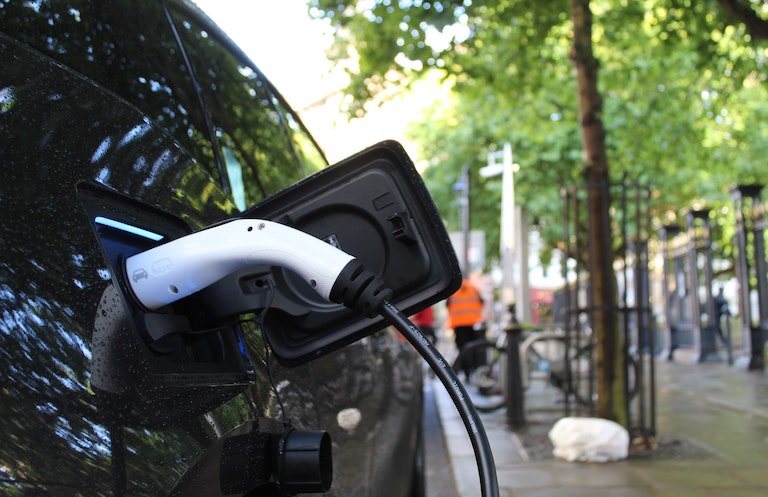Month: January 2021
Our Top Energy Efficiency Stories of 2020
SEEA Staff

2020 was a year of firsts and hopefully some never-agains. We experienced the first global pandemic in over a century, grieved over the tragic consequences of systemic racism, and felt the uncertainty of a growing economic recession. The energy sector and the Southeast did not go unscathed. In this time of loss, we found resilience and a renewed purpose to bring our values into our work every day. These are the stories that kept us up at night, gave us hope, and reminded us that there is still work to be done.
Energy-Efficient Transportation

Electric vehicle (EV) infrastructure expanded throughout the Southeast in 2020. In North and South Carolina, Duke Energy Progress and Duke Energy Carolinas were approved to implement electric vehicle pilot programs that include the installation and operation of EV charging stations in public places and multifamily communities as well as publicly accessible fast-charging stations. The Florida legislature passed Senate Bill 7018, which paved the way for the development of a statewide electric vehicle infrastructure master plan. In December 2020, the Florida Department of Transportation submitted its draft of policy recommendations and is expected to complete the master plan by July 1, 2021.
EV manufacturing boomed throughout the region. Mercedes-Benz U.S. International has planned a new EV parts facility near Tuscaloosa, AL. GM announced plans to transition its existing assembly plant in Spring Hill, TN, to its third electric vehicle manufacturing plant in North America. Arrival, the U.K. electric vehicle startup, has chosen Charlotte, NC for its headquarters after announcing plans to build a microfactory in nearby Rock Hill, SC. These developments keep or create over 4,000 jobs in the Southeast and represent a $3 billion investment in local economies.
Energy Efficiency Policy

In spring 2020, the Virginia General Assembly passed and approved the Virginia Clean Economy Act (VCEA), requiring state utilities to produce 30% of their energy from renewables by 2030, close all carbon-emitting power plants by 2050, and attain mandatory energy efficiency savings targets. Additionally, the General Assembly made the Virginia Council on Environmental Justice a permanent advisory body to the executive branch, after operating on a temporary basis for nearly two years. The council will provide recommendations to protect vulnerable communities and integrate environmental justice into the state’s daily operations.
In 2019, four of the seven utilities subject to the Florida Energy Efficiency Conservation Act (FEECA) proposed reducing their energy efficiency goals to zero, or nearly zero, for the next decade. The Florida Public Service Commission (FPSC) rejected those goals and began to assess with state legislators how they might reform or reinterpret FEECA to improve energy savings. In early 2020, the FPSC opened docket 20200181 and requested commission staff to propose changes to the processes of setting goals and approving programs for energy efficiency. On January 14, 2021, policy director Cyrus Bhedwar participated in a workshop held by the FPSC on the FEECA revision process. The FPSC is accepting written public comments until February 15.
Both of these acts set the stage for decades of improved energy efficiency goals and clean energy standards, providing a healthier, more just future across the Southeast.
Built Environment

The onset of the economic recession caused by the COVID-19 pandemic revealed and made worse existing inequities in housing and energy for millions of Americans. In September 2020, research from Indiana University confirmed that energy insecurity, the inability to pay utility bills, is higher in households of color than their white counterparts. The American Council for an Energy Efficiency Economy (ACEEE) listed Birmingham, AL as the city with the highest energy burden and Alabama, Kentucky, Mississippi, and Tennessee the most energy burdened states in the country.
Because of this existing economic inequity, Black and Latino communities are most at risk for utility shut-offs. Access to electricity, gas, water, and broadband are all crucial to remaining healthy during a pandemic and sheltering at home.
2020 also affirmed that energy efficiency regulation works. An April FEMA study found that strong building codes, including energy codes, in Florida and California will save the country’s most disaster-prone states $1 billion annually. In its annual progress report, Department of Energy’s Better Buildings Initiative reported nearly $11 billion in savings since its inception a decade ago.
Diversity, Inclusion, & Integration

This summer there was a national calling to confront systemic racism and reform police practices. In the midst of this reckoning, private and public changes moved the region and the energy sector towards equity. In July 2020, Georgia Power’s Senior Vice President of Metro Atlanta & Corporate Relations Bentina Chisolm Terry took on an expanded role that includes Georgia Power’s work in underserved communities – people of color, the elderly, women, and LGBTQ+. In October 2020, Terry, and her colleague Latanza Adjei, Vice President of Corporate Services, were selected to the Atlanta Business League’s list of “Atlanta’s Top 100 Black Women of Influence.”
In August 2020, Department of Energy announced the first slate of Equity in Energy Ambassadors and Champions. The Ambassadors are responsible for leading efforts for ensuring diversity and equal access to energy. In Mississippi, residents overwhelmingly voted in the general election to remove Confederate imagery from the state flag. Similarly, Alabama voters approved an amendment that starts the process of deleting racist language from the state constitution inserted during the Jim Crow era.
While this work is not complete, these steps bend the arc of the universe just a bit more towards justice and equity.


